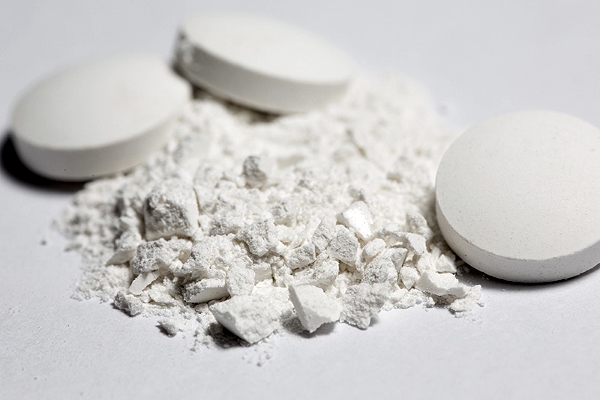
Diversion of opioid analgesics into the black market is fuelling an addiction epidemic that cannot be solved by the traceability system being developed for the US, says an addiction specialist.
A far bigger problem – according to Bryn Wesch of Novus Medical Detox Center – is that companies are knowingly oversupplying the market and not being held to account for their actions, claiming the supply chain is too fragmented and complex to be monitored effectively.
Some manufacturers are citing the upcoming serialization and tamper-evidence provisions of the Drug Supply Chain Security Act (DSCSA) as evidence they are meeting their ethical requirements to make sure the products are used responsibly, but Wesch is unimpressed.
"Tracking [opioids] will only help if we require the manufacturers and wholesalers to be held liable for over supplying and not knowing the customers sufficiently enough to prevent the medication from getting into the hands of doctors and pharmacies that are not responsibly prescribing," she tells SecuringIndustry.com.
"When a company like Mallinckrodt can supply 500m pills to the state of Florida in a five year period of time - which represents 66 per cent of all oxycodone sold in the state - and not be held liable for 'not knowing the customer' … claiming it is too hard to manage the number of companies in their channels - we can't call that enforcement," she continues.
The Drug Enforcement Administration (DEA) took Mallinckrodt to task over the situation, launching the first-ever lawsuit against a pharma manufacturer for allegedly violating laws designed to prevent diversion. Six years later the company settled for $34m – admitting no wrongdoing.
In similar cases, wholesale distributor McKesson was fined $150m in January while its rival Cardinal Health settled for $44m in January - having already agreed to pay $20m to West Virginia which has been hard hit by the opioid epidemic. The DEA – which has itself come in for accusations that its leadership blocked efforts to tackle the problem - thinks those numbers show the tide is turning and that distributors are "getting the message" that pleading ignorance is no longer a valid defence.
It doesn't go far enough for Wesch, who wants the opioid manufacturers in the frame as well as tougher laws and penalties. "We have to get to the manufacturers to pay. If the DEA can’t successfully prosecute them because they are within the limits of the law, then we have to change the laws. Until the legislation can catch up, I support the idea of taxing them for all their controlled substance sales and using the money to support treatment for all the people addicted in the US."
According to the Center for Disease Control and Prevention (CDC), 42 Americans died every day in 2015 from opiate overdoses. And it is equally clear is that the opioid addiction epidemic is having a dramatic impact on communities in the US, and seems to disproportionately affect some demographic groups including those on a low-income or otherwise disadvantaged.
Last month, the Cherokee Nation filed a lawsuit against six drug distributors and pharmacies, including Wal-Mart, CVS and Walgreens and the three biggest wholesalers AmerisourceBergen, McKesson and Cardinal Health, accusing them of not doing enough to stop millions of addictive painkiller tablets flooding their communities and harming their people.
The numbers in the lawsuit make for stark reading. Drug overdose deaths have soared 167 per cent of late, and Oklahoma - where the Cherokee Nation is based - leads the US for opioid prescription rates.
All told, 845m milligrams of opioids were distributed in the 14 counties that span Cherokee Nation in 2015 – which according to some sources means that each prescription opioid user in the Cherokee Nation received between 360 and 720 pills.
The pharma industry "uses lobbyists to put pressure on Washington on their behalf and lessen the penalties like in the Cardinal Health and Mallinkrodt cases [and this] is only fuelling the problem," says Wesch.
"They need to start paying for their lack of social responsibility. I support Cherokee Nation bringing the cause of action against the pharmacies and believe we should bring more legal pressure to all levels involved from manufacturers to distributors."
For adults within the Cherokee Nation, overdose deaths now outnumber deaths due to car accidents, according to tribal leaders.
"These companies must be held accountable for their gross negligence, which has fuelled the opioid epidemic. We deserve better," said Cherokee Nation Attorney General Todd Hembree.
"They enabled prescription opioids to fall into illicit distribution channels, failed to alert regulators of extreme volume, and incentivized sales of these drugs with financial bonuses. We will not stand by while children are born addicted to opioids and our citizens die."
©
SecuringIndustry.com





